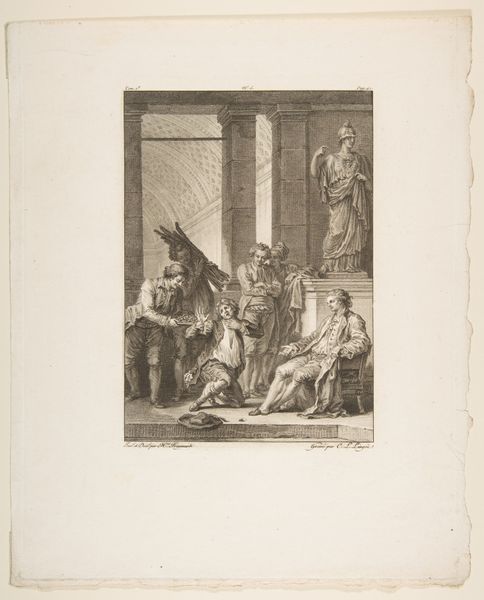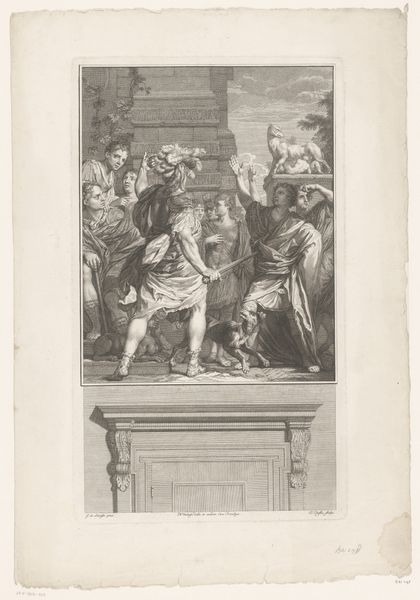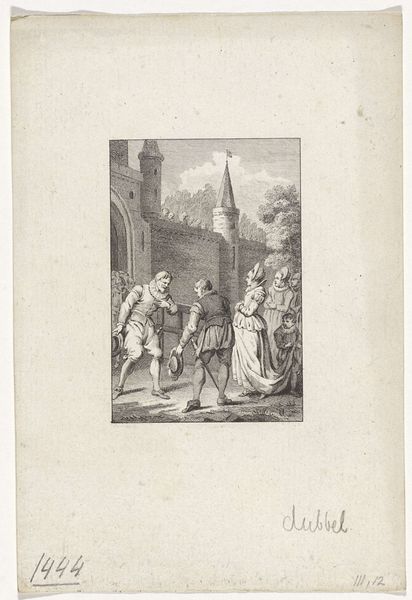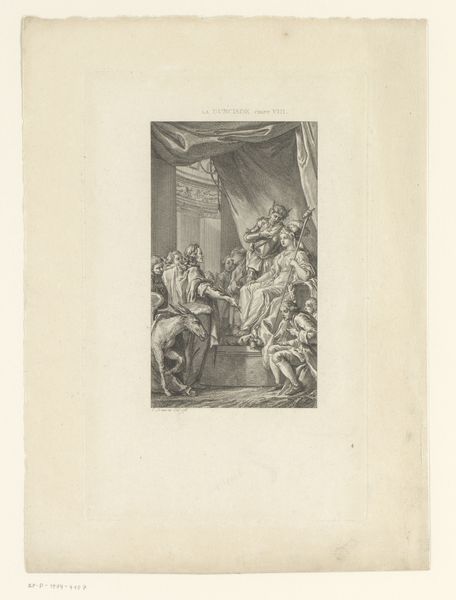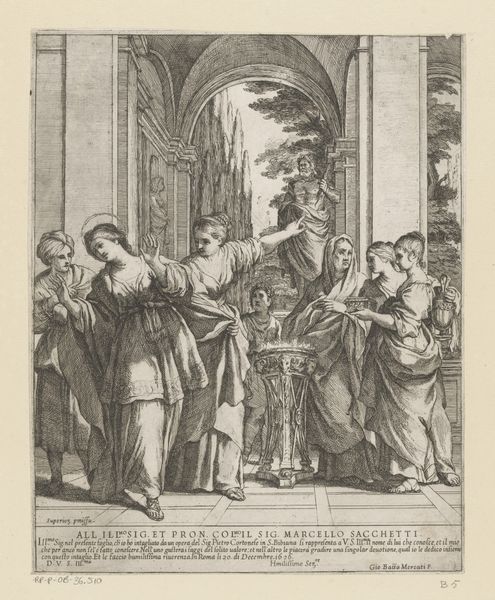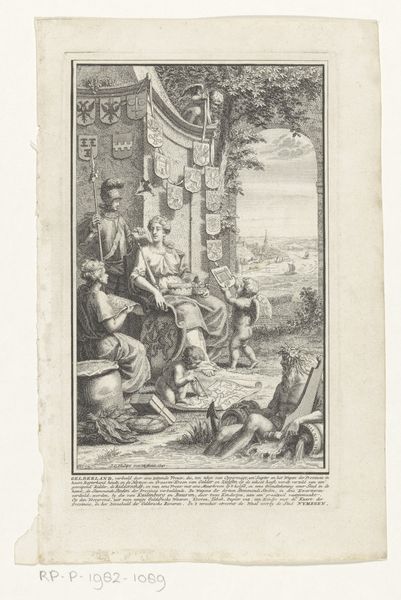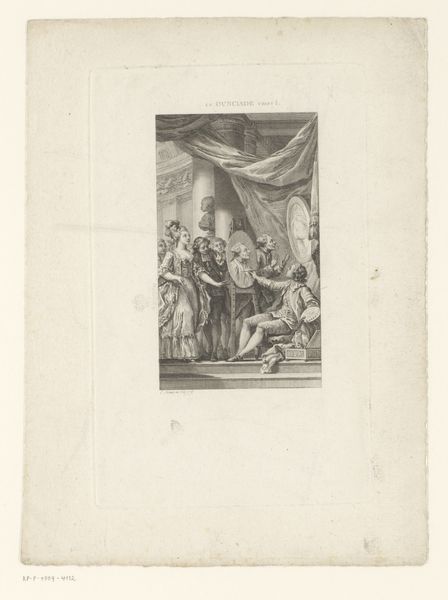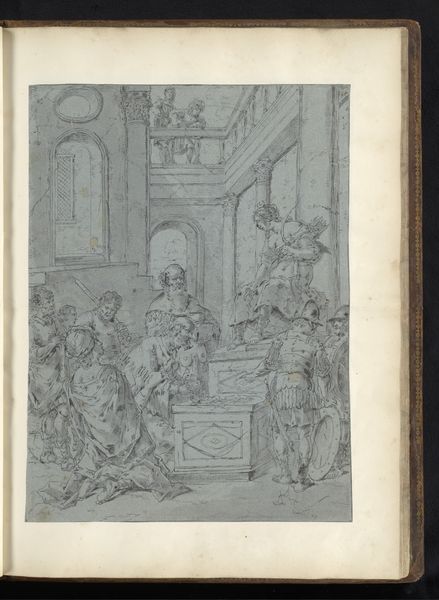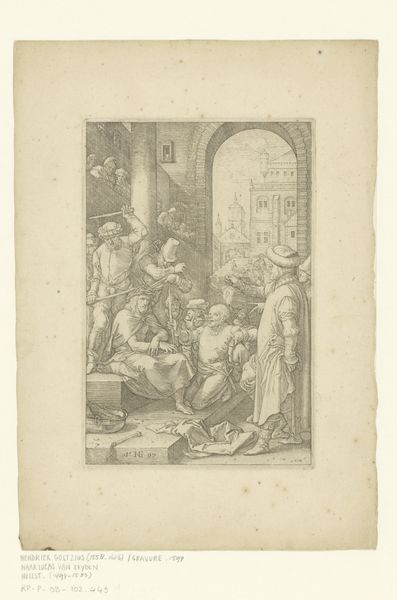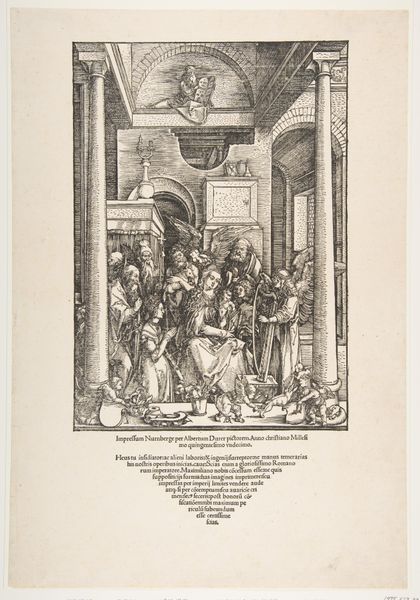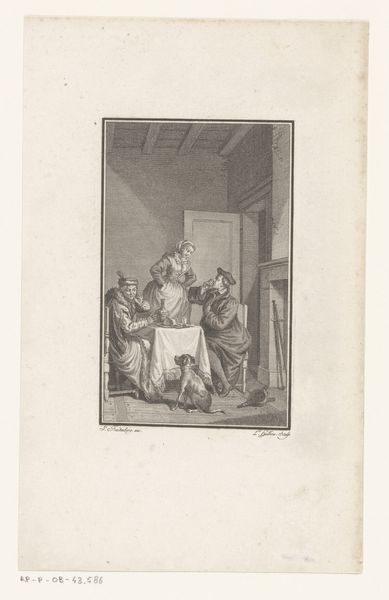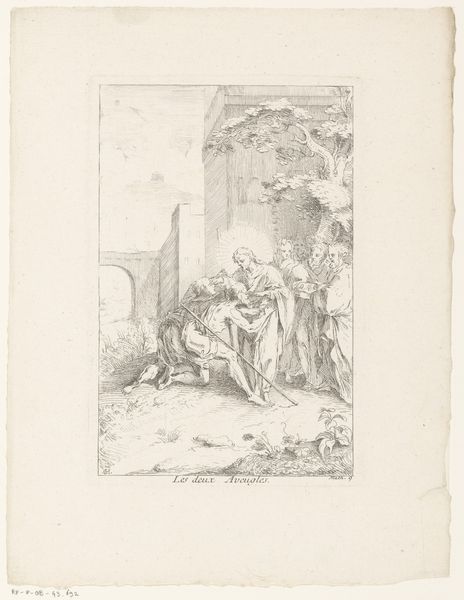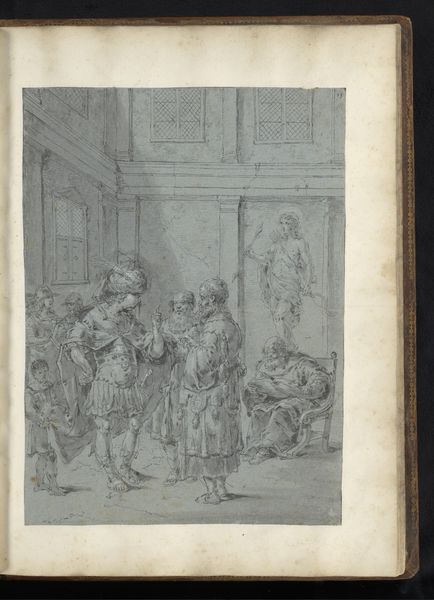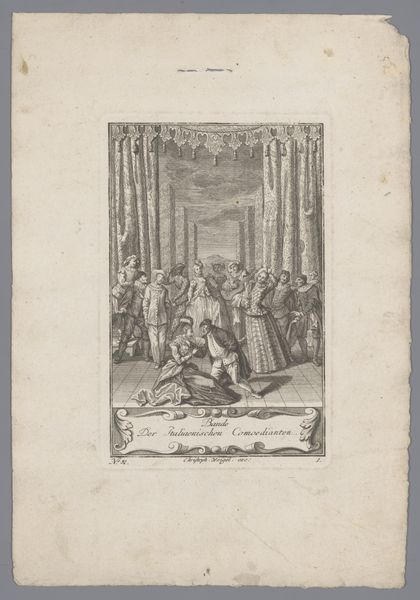
Le Paysan qui avait offense son Seigneur, from "Contes et nouvelles en vers par Jean de La Fontaine. A Paris, de l'imprimerie de P. Didot, l'an III de la République, 1795" 1790 - 1800
0:00
0:00
drawing, print, etching, engraving
#
drawing
#
narrative-art
#
ink paper printed
# print
#
etching
#
figuration
#
men
#
watercolour illustration
#
history-painting
#
engraving
Dimensions: Sheet: 13 11/16 × 10 in. (34.8 × 25.4 cm) Plate: 12 5/16 × 9 5/16 in. (31.3 × 23.7 cm)
Copyright: Public Domain
This etching, "Le Paysan qui avait offensé son Seigneur," was created by Jean-Honoré Fragonard in Paris in 1795. It is part of a book of illustrated stories, and printed on paper using an intaglio process. The image is made by incising lines into a metal plate, applying ink, and then pressing the plate onto the paper. The pressure involved creates a slightly raised surface on the paper, which you can feel if you run your fingers over it. Fragonard was a master of this technique, using it to create a range of subtle tonal effects. Look closely, and you'll see how the etched lines vary in thickness and density, creating a sense of light and shadow. The story of a peasant who has offended his lord is brought to life through Fragonard's skillful manipulation of line and tone, capturing the social dynamics of late 18th-century France. The print represents a moment in time that is now frozen within the fibers of the paper, inviting us to contemplate the story, and the labor and skill involved in its making. This reminds us of the artistic knowledge that existed alongside social issues of labor, class, and hierarchy.
Comments
No comments
Be the first to comment and join the conversation on the ultimate creative platform.
